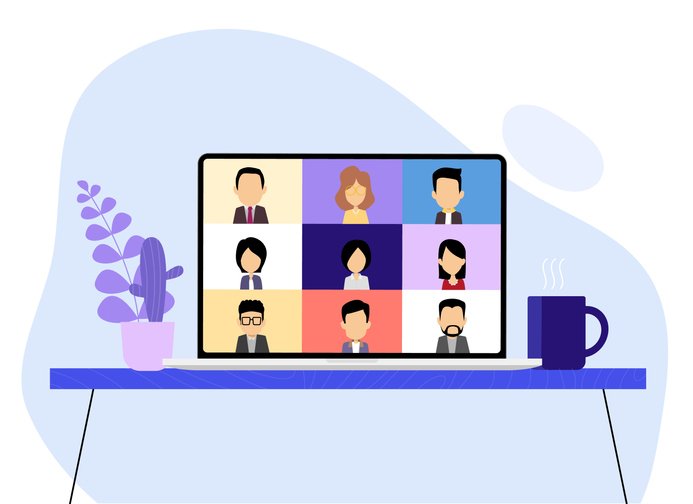


BASP First Doctoral Exam Presentations
Zoom link (for remote access)
In-person attendance is in room 9100 (Skylight Room) at the Graduate Center
Join us for an exciting day as BASP students present their research for their First Doctoral Exams!
Alix Alto: “There could be actual freedom”: Radical imagination on the American left
Ricky Granderson: Brothers in arms: Physical touch in men’s homosocial friendships
Madeline Nickel: From injustice to inaction: The role of worldview threat in dampening collective action

Student Research Showcase
Zoom link (for remote access)
In-person attendance is in room 9100 (Skylight Room) at the Graduate Center
BASP students showcase and discuss their most recent and fascinating research to date!

R Workshop
Zoom link (for remote access)
In-person attendance is in room 9100 (Skylight Room) at the Graduate Center
Join us as BASP student Ryan Tracy leads a workshop on data cleaning and visualization in R using ggplot2!
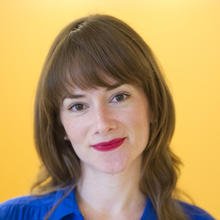
Mina Cikara Harvard University
Zoom link (for remote access)
In-person attendance is in room 9100 (Skylight Room) at the Graduate Center
Talk title: Causes and consequences of coalitional cognition
Abstract: What is a group? How do we know to which groups we belong? How do we assign others to groups? A great deal of theorizing across the social sciences has conceptualized ‘groups’ as synonymous with ‘categories,’ however there are a number of limitations to this approach: particularly for making predictions about novel intergroup contexts or about how intergroup dynamics will change over time. Here I present two projects that offer alternative frameworks for thinking about these questions. First I review some recent work elucidating the cognitive processes that give rise to the inference of coalitions (even in the absence of category labels). Then I'll discuss an ongoing project on the effects of social group reference dependence--which falls out of coalitional reasoning--on hate crimes in the U.S. between 1990 and 2010.
Assistant Professor
Bio: Professor Cikara studies how the mind, brain, and behavior change when the social context shifts from “me and you” to “us and them.” She focuses primarily on how group membership, competition, and prejudice disrupt the processes that allow people to see others as human and to empathize with others. She uses a wide range of tools—standard laboratory experiments, implicit and explicit behavioral measures, fMRI and psychophysiology—to examine failures of empathy, dehumanization, and misunderstanding between groups. She is equally interested in the behavioral consequences of these processes: discrimination, conflict, and harm. Mina Cikara is an Assistant Professor in the Department of Psychology and director of the Intergroup Neuroscience Lab. She received her Ph.D. in Psychology and Social Policy from Princeton University in 2010 and completed a NIH Ruth L. Kirschstein NRSA Postdoctoral Fellowship in the Department of Brain and Cognitive Sciences at MIT. Before arriving to Harvard, she was an Assistant Professor of Social and Decision Sciences at Carnegie Mellon University (2012-2014). Research interests: Intergroup bias, emotion, cognitive and affective neuroscience.
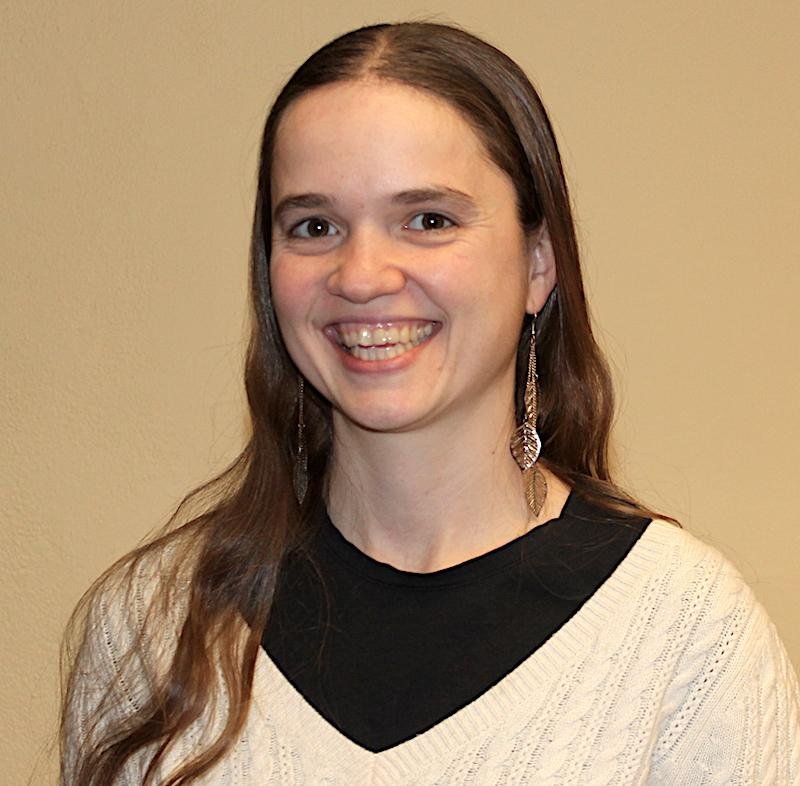
Larisa Heiphetz Columbia University
Zoom link (for remote access)
In-person attendance is in room 9100 (Skylight Room) at the Graduate Center
Talk Title: Redemption After Wrongdoing: Children's and Adults' Responses to Transgressions
Abstract: TBD
Assistant Professor
Bio: Dr. Heiphetz focuses on moral cognition in children and adults. Some studies investigate topics of central interest to moral philosophy and psychology, such as the extent to which moral beliefs are similar to other mental states and the role of moral beliefs in identity. In addition to this line of work, she studies two topics related to moral psychology. First, because many people link religion and morality, she is interested in how individuals think about religious ideas and how they perceive religious out-group members. Second, because involvement in the criminal justice system is often associated with moral transgressions, she is interested in how individuals think about the justice system and about individuals who are involved in this system.


Alumni Panel
Zoom link (for remote access)
In-person attendance is in room 9100 (Skylight Room) at the Graduate Center
Join us for a panel discussion on professional development and career trajectories led by BASP alumni!
Speakers:
Inna Saboshchuk (’18) – Senior Data Product Manager, Levi Strauss & Co
Matthew Goldberg (’18) – Associate Research Scientist, Yale Program on Climate Change Communication
Noelle Malvar (’20) – Senior Researcher, More in Common
Maureen Coyle (’21) – incoming Assistant Professor, Widener University
Maya Godbole (’21) – Consultant, Paradigm IQ

Amanda Gesselman Kinsey Institute Indiana University Bloomington
Zoom link (for remote access)
In-person attendance is in room 9100 (Skylight Room) at the Graduate Center
Talk Title: Love and Sex in Lockdown: Findings from 2 Years of the Pandemic
Abstract: TBD
Head of Research Analytics & Methodology
Bio: Dr. Amanda Gesselman a social–developmental psychologist with additional training in advanced methodology and statistics. She has been with the Kinsey Institute since 2014, and is now the Associate Director for Research at The Kinsey Institute and the inaugural Anita Aldrich Endowed Research Scientist at Indiana University.
Over the last 10 years, Dr. Gesselman has been involved in a wide array of social–behavioral research. Her current research interests are in new trends in the romantic and sexual lives of adults around the world, the influence of close relationships on health and well-being, and how technology can be used to facilitate meaningful connections.
Dr. Gesselman has served as a scientific or statistical consultant for various corporations, non-profit organizations, and academic collaborations. Her work has been published in peer-reviewed scientific journals, and covered by international media outlets including TIME, VICE, and Netflix’s Explained.
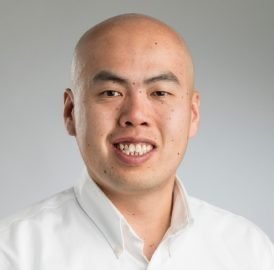
Arnold Ho University of Michigan
Zoom link (for remote access)
In-person attendance is in room 9100 (Skylight Room) at the Graduate Center.
Talk Title: Introducing the Sociopolitical Motive × Intergroup Threat Model to Understand Intergroup Relations: Multiracial Categorization as a Case Study
Abstract: Researchers have used social dominance, system justification, authoritarianism, and social identity theories, to understand intergroup phenomena ranging from racial categorization to political movements. The result has been a growing understanding of how particular sociopolitical motives and contexts impact intergroup relations, without a unifying perspective to integrate these insights. Using research on multiracial categorization as a case study, I review evidence supporting each theory’s predictions concerning how monoracial perceivers categorize multiracial people that combine their ingroup with an outgroup, with attention to the moderating role of perceiver group status. I find most studies in the multiracial categorization literature cannot arbitrate between theories of intergroup relations and reveal additional gaps in the literature. To advance this research area, I introduce the Sociopolitical Motive x Intergroup Threat (SMIT) Model of Intergroup Relations that 1) clarifies which sociopolitical motives interact with which intergroup threats to predict categorization and 2) highlights the role of perceiver group status. Moreover, I consider how the SMIT model can help understand phenomena beyond racial categorization.
Associate Professor
Bio: Research in Dr. Ho’s lab examines why systems of group-based social inequality are ubiquitous and resistant to change. His current research centers around three major themes. The first is why individuals who qualify equally for membership in more than one group (e.g., biracial people) are categorized and perceived as belonging more to their lower status parent group. Second is the nature of social dominance orientation (SDO), or individual differences in the preference for inequality between groups (e.g., race or caste groups). The third is the endorsement of ideologies and beliefs that justify group-based inequality and discrimination (that is, beliefs that make inequality seem fair or legitimate).


SPSP Practice
Zoom link (for remote access)
In-person attendance is in room 9100 (Skylight Room) at the Graduate Center.
BASP students present their talks and posters in preparation for this year’s Society for Personality and Social Psychology annual conference in San Francisco, CA!



Industry, Applied, and Private Sector Careers Panel
Join us for a panel discussion on industry, applied research, and private sector careers applicable for social psychology PhDs!
Zoom link (for remote access)
In-person attendance is in room 9100 (Skylight Room) at the Graduate Center
Lightning talk presenters:
Industry panelists:
Ron Friedman, PhD
Ron is an author, speaker, and founder of ignite80, a training company that helps smart leaders create extraordinary workplaces. He earned his MA and Ph.D. in social-personality psychology from the University of Rochester.
Brian Johnston, PhD
Brian is a Principal Data Scientist at IBM. He completed his PhD, with Demis Glasford as his advisor and a focus on understanding intergroup relations. He now applies data science solutions to improve HR at IBM.
Diego Reinero, PhD
Diego is a Presidential Postdoctoral Research Fellow at Princeton University, holding a Ph.D. in social psychology from New York University and dual B.S. in psychology and business from Skidmore College. Although Diego is still in the academic world, he has been dabbling with non-academic careers. He completed an internship at Airbnb this past summer as a Quantitative UX Researcher, and worked pro-bono with the behavioral science nonprofit, ideas42, the summer prior as a Behavioral Science Consultant. As a recent Ph.D. graduate, Diego is happy to discuss various things to consider during graduate school and his experience in both the academic and non-academic world.
Julian Wills, PhD
Julian is a Data Scientist at Facebook.

TBA (Professional Development)
Keep this day open for a TBA professional development event!
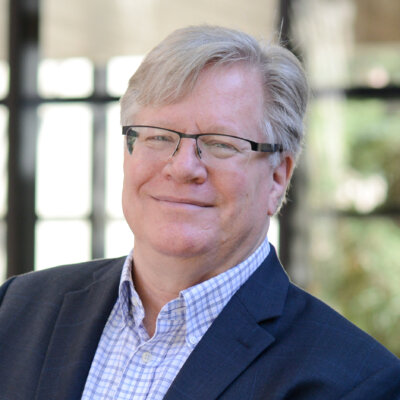
Robert MacCoun Stanford University
Zoom link (for remote access)
In-person attendance is in room 9100 (Skylight Room) at the Graduate Center
Talk title: Causal Lens Analysis of Judgments
Abstract: People construct and act on cognitive maps of relationships among variables in their environment. Egon Brunswick’s mid-20th century “lens model” provided a useful framework for studying this mapping process, facilitating a comparison between the correlates of outcomes in the world and the correlates of our predictions of those outcomes. While the framework has been invaluable for identifying biases and misjudgments, it has focused on patterns of association rather than causation. Recent theoretical and methodological advances suggest it might be fruitful to incorporate causal structure into the lens model. I sketch out a causal extension of the lens model (CLens) and discuss some of its potential benefits and challenges for theory construction, research design, and data interpretation.
Professor
Bio: Dr. MacCoun is a social psychologist and public policy analyst who has published numerous studies on a variety of topics, including illicit drug use, drug policy, judgment and decision-making, citizens’ assessments of fairness in the courts, social influence processes, and bias in the use and interpretation of research evidence by scientists, journalists and citizens. A preeminent scholar working at the border of law and psychology, his scholarship involves a mix of experimental and non-experimental empirical research as well as computational modeling and simulation.
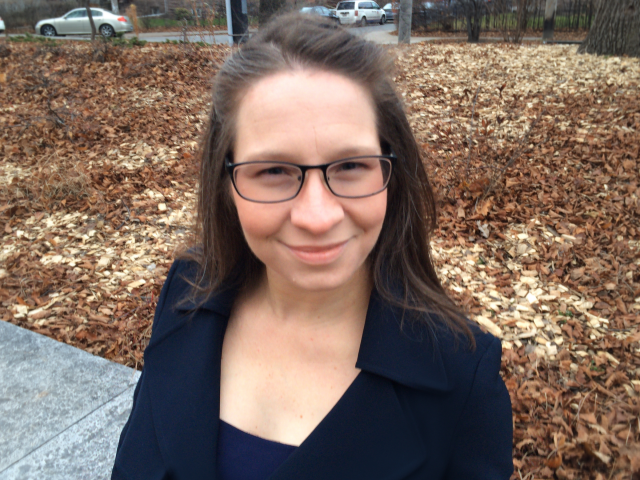
Elizabeth Page-Gould University of Toronto
Zoom link (for remote access)
In-person attendance is in room 9100 (Skylight Room) at the Graduate Center
Talk title: The Intergroup Perspective on Cross-Group Friendship
Abstract: Cross-group friendship has long been considered a powerful component of positive intergroup relations, largely because cross-group friendship was assumed to be an “optimal” type of intergroup contact (Allport, 1954). While we recognize that cross-group friendship cannot exist in the absence of intergroup contact, we argue that cross-group friendship is something greater than extremely good contact. Cross-group friendship is the manifestation of intergroup cooperation at the individual level of scale. Describing our asymptotic model of intergroup contact (MacInnis & Page-Gould, 2015), we discuss how intergroup contact can improve or worsen prejudice. When contact involves repeated intergroup interactions with the same outgroup member, then a cross-group friendship has the potential to emerge. Drawing on complexity theory, we suggest that cross-group friendships are complex adaptive systems that emerge from repeated intergroup interactions with the same outgroup member. Cross-group friendships exhibit many features of complex adaptative systems, such as being chaotic, dynamic, and self-organizing. We organize our research on cross-group friendship into early, intermediate, and established stages of cross-group friendship development to explore this idea. We conclude that cross-group friendships are complex manifestations of intergroup relations at the individual level.
Associate Professor
Bio: Dr. Page-Gould’s research focuses on how social interactions between strangers and friends affect the way people think about and approach the world, particularly within the domain of intergroup relations. Her lab specializes in multi-person, longitudinal, psychophysiological, and behavioural data collection across both laboratory and field settings. The lab also specializes in advanced statistical analysis and quantitative innovation. Both the research conducted in SPRQL and the training environment the lab offers represent a unique combination of advanced research methods from social psychology, psychophysiology, and statistics.
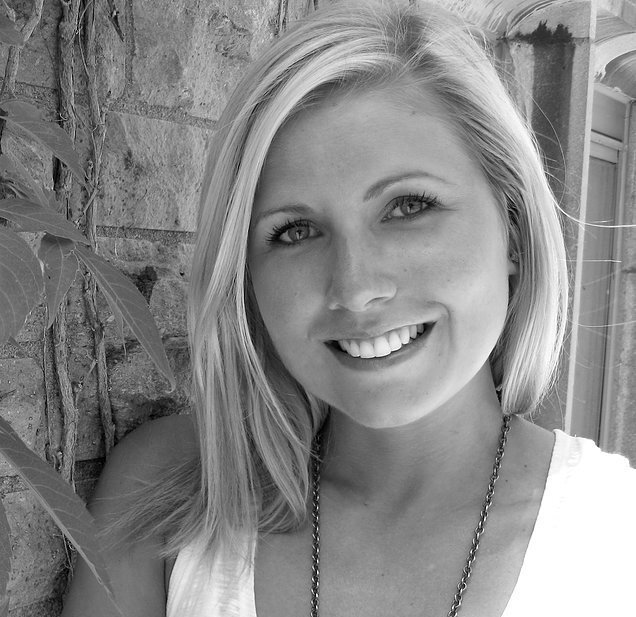
Amy Muise York University
Zoom link (for remote access)
In-person attendance is in room 9100 (Skylight Room) at the Graduate Center
Talk title: Fanning the flame: The role of sexual communal motivation
Abstract: One important but challenging aspect of maintaining a satisfying romantic relationship is keeping the sexual spark alive. Research suggests the importance of a couple’s sexual connection in the maintenance of their relationship, but sustaining high levels of desire for a partner over the course of time can be difficult. In the current review, we argue that one novel approach to understanding how couples might maintain desire and satisfaction over the course of time in their relationships is applying theories of communal motivation to the domain of sexuality. In this line of research, we have demonstrated that people high in sexual communal strength – those who are motivated to be non-contingently responsive to their partners’ sexual needs – are able to sustain higher sexual desire over the course of time and navigate sexual disagreements in a way that maintains both partners’ relationship quality. Future research directions include broadening the view of sexual needs to include the need to decline or reject a partner’s sexual advances and investigating how partners manage unmet sexual needs.
Assistant Professor
Bio: Why are some couples able to keep their sexual spark alive and have fulfilling romantic partnerships over time while other couples are disconnected and discontent? Dr. Muise’s research focuses on understanding how couples can maintain happier relationships and have more fulfilling sex lives over time. In her research, she applies social psychological theories of close relationships and motivation to understand when and for whom sex is associated with benefits and when it might detract from the quality of relationships. She uses dyadic and longitudinal research methods and analyses (i.e., daily experience studies, multi-level modeling) to understand how sexual processes unfold to impact relationship well-being in the context of couples’ daily lives as well as over the course of time as relationships grow and develop.
Dr. Muise is interested in understanding these processes not only when couples are doing well, but also when they are navigating relationship transitions, such as the transition to parenthood or the COVID-19 pandemic, or coping with a clinical sexual issue, such as low sexual desire. Her interest lies in understanding the individual and relationship characteristics that help couples navigate relationship changes and challenges with greater success.
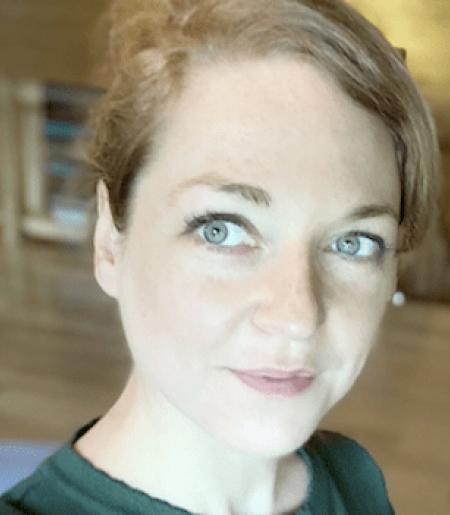
Laura Niemi Cornell University
Zoom link (for remote access)
In-person attendance is in room 9100 (Skylight Room) at the Graduate Center
Talk title: Principled or personal? Moral values and causal attribution
Abstract: Because they are implicated in punishment and blame, differences in causal attributions can be morally significant. In this talk, I’ll present research that addresses several open questions about causal attribution and moral judgment. Why don’t causal attributions straightforwardly reflect the moral principles in values? How much do the attributor’s own personal values really matter in attribution for moral violations? Do values interact with an attributor’s relationship to the violator? Findings from six preregistered studies (total N = 2,596) disambiguate influences on causal attribution for moral violations. The results indicate that causal attribution is both principled and personal, influenced by (1) principles intrinsic to attributors’ values, (2) individual differences in values, and (3) the attributors’ relationship to the violator.
Assistant Professor
Bio: Dr. Niemi’s research examines the psychological underpinnings of why and how people morally judge each other, decide what is right and wrong, make choices to help or harm, and live out their values. Dr. Niemi also investigates how methods and findings from moral psychology research can be applied to address social issues.
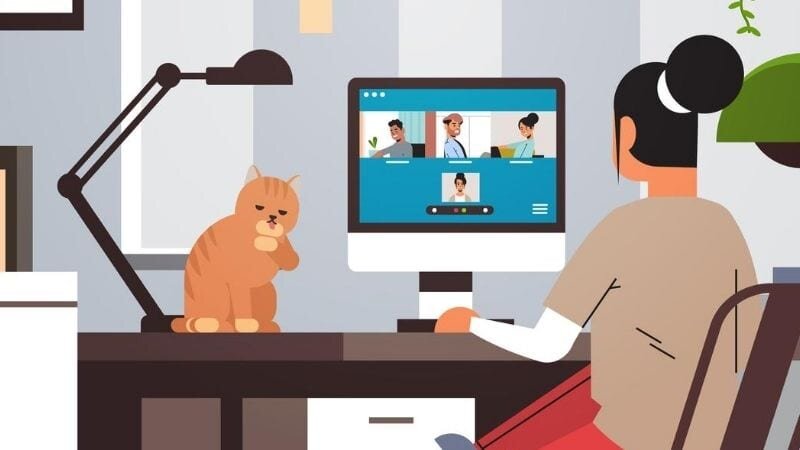

Professional Development: R Basics Workshop
Zoom link (for remote access)
In-person attendance is in room 9100 (Skylight Room) at the Graduate Center
Join us for a professional development day where BASP student Ryan Tracy will lead a workshop on the basics of data analysis using R!
Lightning talk presenters:

Professional Development: Asking Questions at Conferences
Zoom link (for remote access)
In-person attendance is in room 9100 (Skylight Room) at the Graduate Center
Join us for a professional development event where we will discuss the ins and outs of asking questions at professional conferences! We will also have two students present their current research in a lightning talk!
Lighting talk presenters:

Mina Cikara Harvard University
Zoom link (for remote access)
In-person attendance is in room 9100 (Skylight Room) at the Graduate Center
Talk title: Context dependence in social preferences and categorization
Abstract: Many of society's most significant social decisions are made over sets of individuals: for example, evaluating a collection of job candidates when making a hiring decision. Rational theories of choice dictate that decision makers' preferences between any two options should remain the same irrespective of the number or quality of other options. And yet, people's preferences for each option in a choice set shift in predictable ways as a function of the available alternatives. These violations are well documented in consumer behavior contexts: for example, the decoy effect, in which introducing a third inferior product changes consumers' preferences for two original products. I will discuss two projects which shift the target of inquiry from products to people, and aim to harness insights from computational models of decision-making to examine how choice set construction can be used to change social preferences via attribute accumulation and intergroup categorization via latent structure learning.
Assistant Professor
Bio: Professor Cikara studies how the mind, brain, and behavior change when the social context shifts from “me and you” to “us and them.” She focuses primarily on how group membership, competition, and prejudice disrupt the processes that allow people to see others as human and to empathize with others. She uses a wide range of tools—standard laboratory experiments, implicit and explicit behavioral measures, fMRI and psychophysiology—to examine failures of empathy, dehumanization, and misunderstanding between groups. She is equally interested in the behavioral consequences of these processes: discrimination, conflict, and harm. Mina Cikara is an Assistant Professor in the Department of Psychology and director of the Intergroup Neuroscience Lab. She received her Ph.D. in Psychology and Social Policy from Princeton University in 2010 and completed a NIH Ruth L. Kirschstein NRSA Postdoctoral Fellowship in the Department of Brain and Cognitive Sciences at MIT. Before arriving to Harvard, she was an Assistant Professor of Social and Decision Sciences at Carnegie Mellon University (2012-2014). Research interests: Intergroup bias, emotion, cognitive and affective neuroscience.


Welcome back!
Welcome to the 2021-2022 academic year!
In-person attendance is in room 9100 (Skylight Room) at the Graduate Center